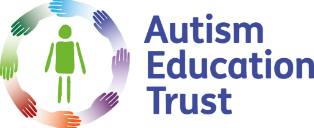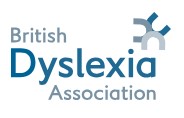SEND
SEND (special educational needs and disabilities/learning support)
Aims of the Learning Support Department
Our aim at South Charnwood is to ensure that every child, whatever their individual needs, has access to the full curriculum and that provision is made to help young people feel that they are in every way a part of school life. The progress of every child with Special Educational Needs is monitored by our SENDCO. We liaise closely with parents, tutors, teachers and other external agencies, in order to support the most vulnerable pupils. The school pursues excellence in all it does, placing the learner at the heart of its work.
The ethos is inclusive, where communication is the key to achieving success. Pupils enjoy all the learning opportunities they are offered and rise to the challenge of the high expectations we have of them. To demonstrate our commitment to these aims we will monitor and evaluate our practice and strive continuously to improve it; invest in quality training and career development for all staff in line with the School Development Plan and invest in and improve resources for learning.
We are guided by the Code of Practice for Special Educational Needs (2015) and the Equality Act (2010) which recognise that “pupils with special educational needs have learning difficulties that are significantly greater than the majority of children of the same age or have disabilities that prevent or hinder them from having full access to the facilities or curriculum.”
There is a need to ensure that there is appropriate challenge in the learning of all our pupils, by developing a range of strategies for differentiated learning in the classroom.
For some pupils, needs will be long-term and go across phases. In these cases, staff at South Charnwood support in liaising with colleagues in both Primary and post-sixteen provisions. For others, needs will be short-term or temporary (for example the result of emotional or physical crisis). Some of these pupils will have an Educational Health Care Plan or a SEND support plan.
The SEND Team
The SEND team is led by the Special Educational Needs and Disabilities Coordinator, Gemma Sharp, who is supported by SEND administrator, Sally Williams. The department also includes a Vocational and Alternative Provision Coordinator, Vanessa Lett, a SEND tutor, a dedicated Emotional Literacy Support Assistant (ELSA) and an experienced team of Learning Support Assistants. Together they are responsible for:
-
Coordinating the provision for children with SEND and creating opportunities that allow them to access the curriculum in a safe and inclusive way.
-
Developing and reviewing the SEND policy.
-
The day to day management of the support for children with SEND.
-
Supporting Teachers, TAs and LSAs in the most appropriate educational provision, whilst ensuring we make best endeavours that your child’s needs are met.
-
Delivering bespoke group and individual interventions.
-
Ensuring that parents are:
- Involved in supporting their child’s learning
- Kept informed about the support their child is receiving
- Involved in reviewing how their child is doing
- Involved in planning ahead for their child
-
Supporting successful transitions – whether this is between key stages or to external provisions.
-
Liaising with external agencies who can offer advice and support to school, students and parents.
-
Providing specialist advice and facilitating training to ensure that all staff in school are skilled and confident about meeting the wide range of SEND needs
-
Ensuring appropriate exam access arrangements.
If you have any questions about SEND at South Charnwood High School, please do not hesitate to contact the Learning support department:
Email - swilliams@southcharnwood.org or gsharp@southcharnwood.org
SEND department email - senadmin@southcharnwood.org
Tel: 01530 242351 ext 814.
South Charnwood SEND policy & SEND information report.
Autistic Spectrum Disorder
Autism is a lifelong developmental disability that affects how people communicate and interact with the world. More than one in 100 people are on the autism spectrum and there are around 700, 000 autistic adults and children in the UK.
People who have autism tend to have difficulties in the following areas:
-
delayed or absent speech
-
difficulty with listening, concentrating and understanding
-
frequent repetition of words and phrases
-
taking things literally
-
difficulty sensing and interpreting people’s feelings
-
difficulty expressing feelings
-
over or under sensitivity to sound, touch, taste, smell or light
-
rituals or repetitive behaviours
-
disliking changes to routine
-
difficulty making friends and socialising
Autism is a medical diagnosis so needs to be addressed by medical professionals. However, if difficulties are obvious in the school setting too, it is helpful for the school to support a referral to the GP in the first instance.
Further reading:
-
A Parent's Guide to High-Functioning Autism Spectrum Disorder: How to Meet the Challenges and Help Your Child Thrive by Sally Ozonoff.
-
The Spectrum Girls Survival guide: How to grow up awesome and autistic by Siena Castellon.
-
The Complete Guide to Asperger's Syndrome (Autism Spectrum Disorder): Revised Edition Paperback – 15 May 2008 by Tony Attwood (Author).
-
Freaks, Geeks and Aspergers Syndrome: A User Guide to Adolescence Paperback – 15 Aug 2002 by Luke Jackson (Author), Tony Attwood (Foreword).
-
Can I tell you about Asperger Syndrome? A guide for friends and family. Jude Welton 2004; Jessica Kingsley Publishers ISBN 978-1-84310-206-9
Dyslexia
Dyslexia is a learning difficulty which primarily affects reading and writing skills. However, it does not only affect these skills. Dyslexia is actually about information processing. Dyslexic people may have difficulty processing and remembering information they see and hear, which can affect learning and the acquisition of literacy skills. Dyslexia can also impact on other areas such as organisational skills.
Many dyslexic people show strengths in areas such as reasoning and in visual and creative fields.
If you think your child shows signs of dyslexia, contact a member of the learning support department. A formal diagnosis of dyslexia is not needed in order for a child to get support with their difficulties and early identification can mean that the child learns strategies to better support them as they get older.
Further reading:
- This is Dyslexia. (2021) Kate Griggs.
- At Home with Dyslexia: A Parent's Guide to Supporting Your Child (2018). Sascha Roos.
- Dyslexia. Wrestling With An Octopus: 10 Tips to Help Your Child (2020). Beth Beamish.
- The Gift of Dyslexia: Why Some of the Smartest People Can't Read...and How They Can Learn (2010). Ronald D Davis.
iPad Apps for Learners with Dyslexia/reading and Writing Difficulties
Attention Deficit Hyperactivity Disorder (ADHD)
ADHD is a disorder that is defined through analysis of behaviour. People with ADHD show a persistent pattern of inattention and/or hyperactivity–impulsivity that interferes with day-to-day functioning and/or development.
A person may struggle with inattention where they can’t hold attention to someone or something, can’t follow instructions, has poor organisation, unable to sustain mental effort, easily distracted, often loses things. This can lead to a diagnosis of Attention Deficit Disorder.
Where a person is also hyperactive and impulsive, they may fidget or move constantly, be always on the go, talk constantly, has trouble waiting their turn or interrupts others. This may lead to a diagnosis of Attention Deficit Hyperactivity Disorder.
ADD and ADHD are medical diagnoses so need to be addressed by medical professionals. However, if difficulties are obvious in the school setting too, it is helpful for the school to support a referral to the GP in the first instance.
Further reading:
- Understanding A.D.H.D. A Parent's Guide to Attention Deficit Hyperactivity Disorder in Children Paperback – Illustrated, 11 Sep 1997 by Dr Christopher Green & Dr Kit Chee.
- The Survival Guide for Kids with ADHD Paperback – 1 Sep 2013 by John F Taylor.
- Understanding ADHD in Girls and Women. Edited by Joanne Steer, Jessica Kingsley Publishers, 2021
- The Complete Guide to Raising and Empowering the ADHD Child. Jennifer Mind, 2021
- The ADHD Workbook for Adults. Melinda Quinn, 2021
Attachment Disorder
Attachment issues develop in young children when the attachment bond—the emotional relationship that develops between an infant and their primary caretaker—is disrupted or not developed securely.
Since the quality of the attachment bond profoundly impacts your child’s development, experiencing attachment issues can affect their ability to express emotions, build resilience, trust, and confidence, and enjoy healthy relationships. Some studies show that insecure attachment can even contribute to behavioral problems, such as bullying.
Further reading:
- The Simple Guide to Attachment Difficulties in Children Betsy de Thierry, Jessica Kingsley Publishers, 2019
Other SEND
Support for other SEND can be found at the following websites:
- Special Educational Needs and Disability (SEND): A guide for parents
- KIDS – Giving disabled children a brighter future
- National Blind Society
- Young Minds
























